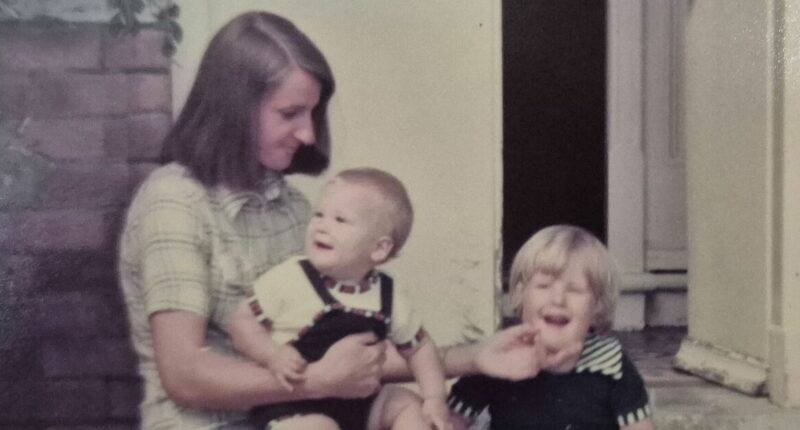Share this @internewscast.com
A devoted son has spoken out about the “dreadful” manner in which his “loving” mum discovered her life-changing health condition. Chris, who requested that his family’s surname remain confidential, shared his mother Shirley’s heart-wrenching struggle with Alzheimer’s disease as part of World Alzheimer’s Month in September.
The way Shirley received her diagnosis was “dreadful”, leaving Chris, from Cambridgeshire, feeling “appalled”. Feeling abandoned without any “support”, he says the family felt utterly alone. It all began when his father, Charles, noticed that Shirley had started “repeating herself”, but led to Chris’ “outgoing, friendly, beautiful and caring” mum becoming “completely reliant” on others. Getting Shirley to visit the GP proved to be a challenge. In fact, it took an entire year from first noticing the symptoms for her to agree to a doctor’s appointment.
Shirley, who struggled with “acceptance” due to the stigma, “fear” and treatment options available for such a diagnosis, was finally assessed after being persuaded to attend under the pretence of discussing her diabetes.
After undergoing what was described as a “paper cognitive test”, she received her diagnosis via a “two-sentence letter”.
Chris said they were “disappointed” with the diagnosis process, and he “struggled” to understand it. He also admitted he “had no clue” about the condition, and part of him even “refused to believe it”.
He explained: “I appreciate that diagnosis can be difficult, but mum never saw a neurologist, never had a scan, lumbar puncture or any other test that may have helped her, or us, come to terms with her condition.
“The way her diagnosis was given was dreadful. I am appalled by that two-sentence letter she received. I would have loved if that letter had at least been able to say that she had been assessed in XYZ ways.”
He continued: “But it didn’t. It also didn’t have a list of any resources or support we could access. She may have got involved with dementia research if she had been signposted to it. But there was nothing. No pathway, no support, no follow-up. We were utterly alone.”
The NHS states that Alzheimer’s represents the leading cause of dementia across the country. Dementia encompasses a collection of symptoms associated with declining brain function, affecting a person’s mental capabilities, such as memory and thinking skills.
Symptoms present themselves gradually over the years, the first being minor memory issues. As the condition progresses, these worsen, and other symptoms can then develop.
These include confusion, disorientation, getting lost, issues with decision-making or planning, issues with speech and language, problems moving about without help, changes in behaviour, and even hallucinations.
Currently, there is no cure for Alzheimer’s disease, but there are medications that can help with the symptoms. The NHS emphasised the importance of an “accurate and timely” diagnosis to help individuals prepare. You can learn more here.
In fact, Shirley’s health struggle led Chris to work for Alzheimer’s Research UK, believing that the most “positive and proactive” action he could take was to use his experience to assist the charity.
He also stressed that people deserve a “timely, accurate diagnosis”, one that is “sensitively given” during an appointment with a specialist who has performed physical tests.
Chris stated: “I want everyone to know that dementia doesn’t just affect older people. Our family had that misconception. Mum never accepted that she had Alzheimer’s. She would say, ‘Don’t be daft – Alzheimer’s is something old people get’.
“I’d rather nobody else in the world ever experiences a parent who has dementia. It’s so painful to see how drastically my mum has changed.”
Alzheimer’s Research UK has launched a petition to make dementia diagnosis a right for everyone living with the condition.
You can add your name here













